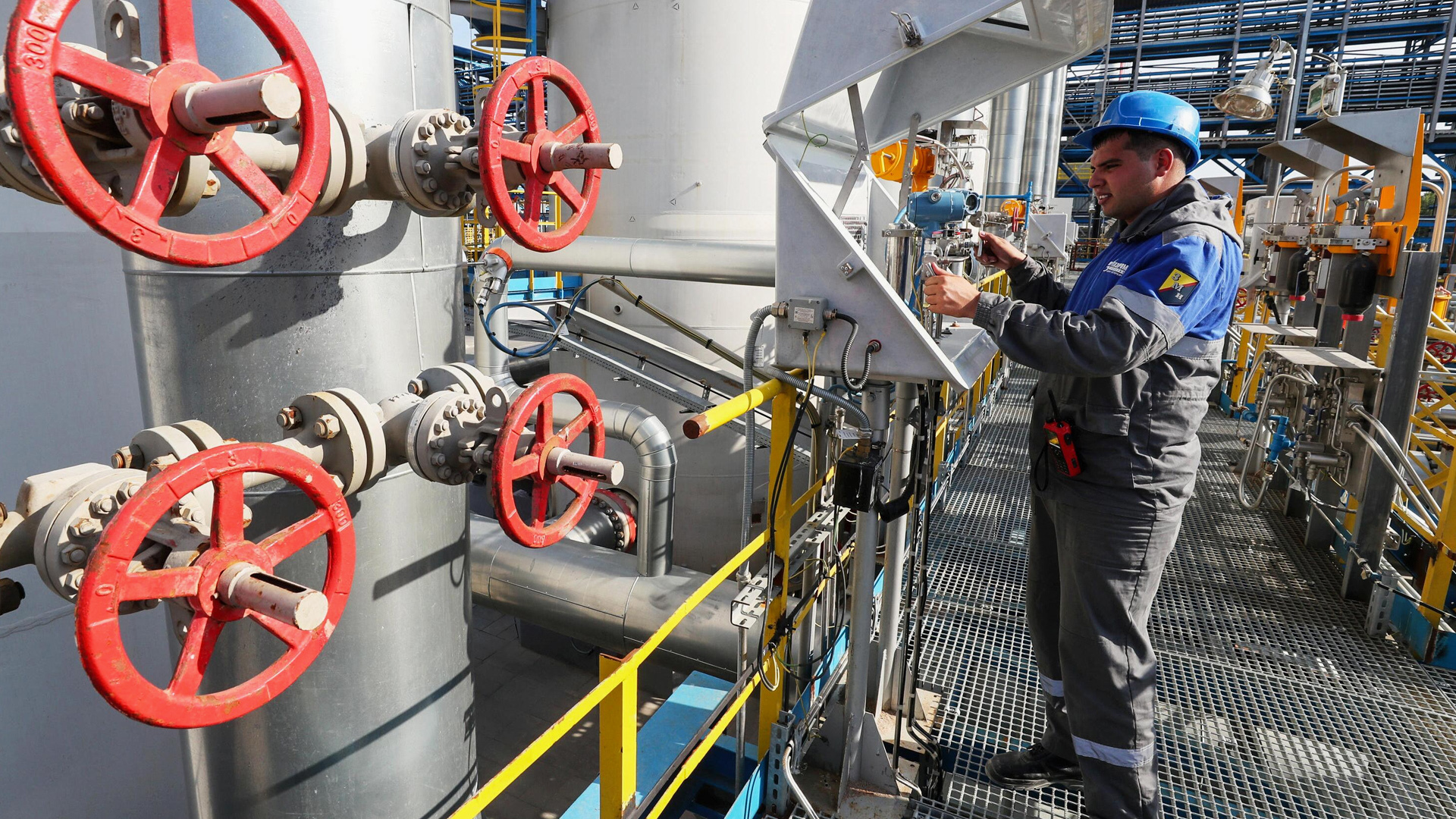Reactions continued to the Russian company Gazprom's announcement that it would halt work on the Nord Stream 1 gas pipeline to Europe for an indefinite period.
The European Commission said that the decision is evidence of Moscow's contempt and preference for burning gas rather than respecting contracts, and the United States considered that Russia is using energy as a weapon, while Germany and France are seeking to find alternative sources of Russian gas.
On Friday, Russia's Gazprom announced that the Nord Stream 1 gas pipeline to Europe had stopped working indefinitely, in a move described as an escalation of the "bone-breaking" battle between Russia and the West against the backdrop of the war in Ukraine.
The company, which has a monopoly on Russian gas exports via pipelines, has made it clear that it will not be able to safely resume pumping oil to Europe until after repairing an oil leak found in a vital turbine.
It did not mention a new time frame.
In response to this decision, European Commission spokesman Peter Stano said that the closure of "Nord Stream 1" is evidence of Russia's contempt and preference for burning gas rather than respecting the signed contracts.
He added that closing Nord Stream 1 under incorrect pretexts is a new confirmation that Russia is an unreliable supplier, as he put it.
For his part, the President of the European Council, Charles Michel, said in a tweet on Twitter, "It is sad that Gazprom's move is not surprising," adding that the use of gas as a weapon would not change the design of the European Union.
Michel stressed that the Union will accelerate its march towards energy independence, and that the European Union has the duty to protect its citizens and support Ukraine's freedom, he said.
alternative sources
As a result of this Russian decision, French Energy Minister Agnès Pannier said that her country will operate all nuclear reactors during this winter, adding that France has 56 nuclear reactors, 32 of which were stopped due to maintenance and corrosion problems.
The French Energy Minister also called for the rationalization of energy consumption and "European solidarity" in order to overcome the coming winter without a shortage of energy supplies.
France and Germany may resort to nuclear energy to make up for the shortage of Russian gas (Getty Images)
Germany, for its part, confirmed that it has made progress in alternative ways of gas supplies, as it may import gas from Britain, Denmark, Norway and the Netherlands through pipelines, and it plans to build two new liquefied natural gas stations within only two years.
Germany also launched the second phase of its three-phase emergency plan, urging companies and consumers to save gas to avoid forced rationalization of consumption.
Energy as a weapon
In the first American reaction to the decision to close Nord Stream 1, the White House said that Moscow was using energy as a tool to pressure Europe, and a spokesman for the US National Security Council told Reuters in an email: “Unfortunately, it is not surprising that Russia continues to use energy as a weapon against European consumers.
It is noteworthy that the Russian measure to postpone the return of the natural gas pipeline "Nord Stream 1" came hours after the finance ministers of the Group of Seven (America, Britain, France, Germany, Italy, Canada and Japan) announced in a joint statement that they plan to implement a ceiling on the price of crude oil and Russian petroleum products.
Moscow responded to this announcement by threatening to cut off oil from the countries that would be involved in this process, and in parallel threatened to cut off gas from Europe if it set a maximum price for Russian gas.

